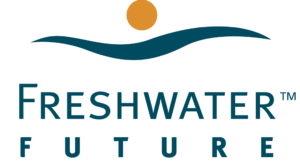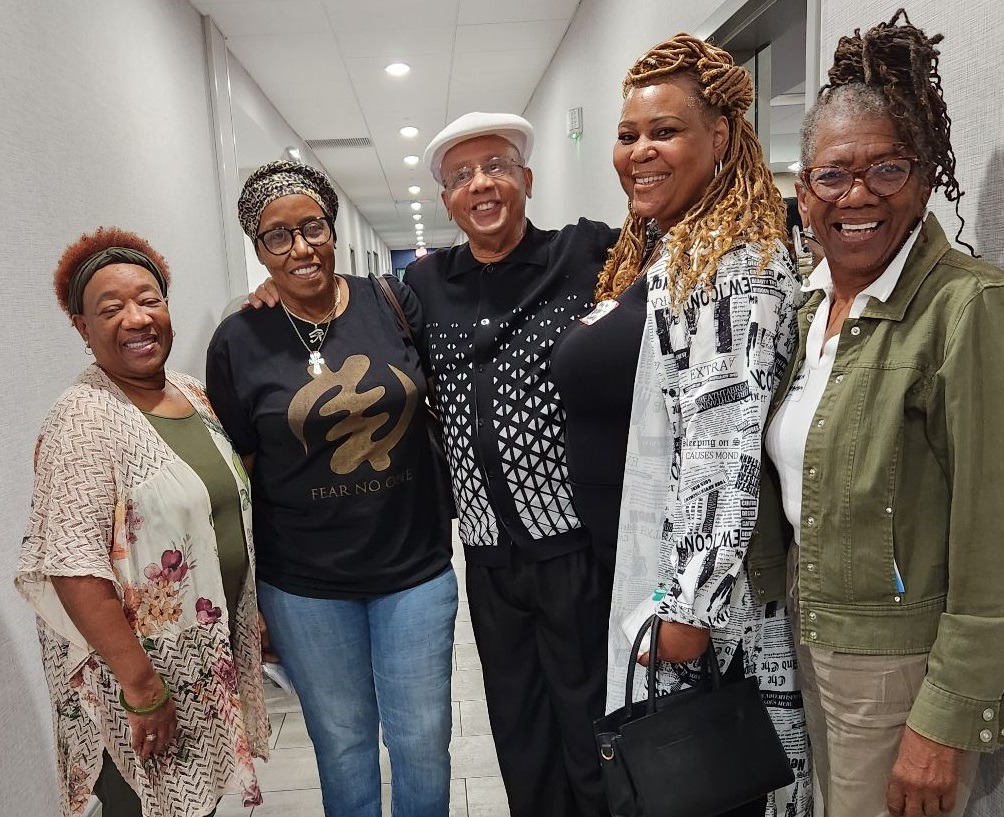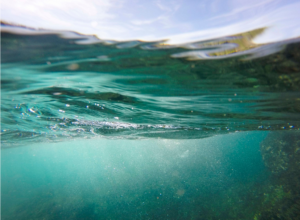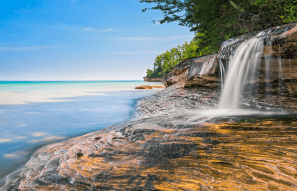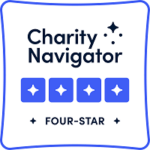It has been four long years since we gathered at the last in-person All About Water Convening in Flint, Michigan. On October 4th, 2023, many old and new friends joined us in making connections, learning more, and discussing the state of water justice across the Great Lakes region. We know some of you weren’t able to make it out to Benton Harbor – but that doesn’t mean you have to miss out. Throughout the day, our speakers lent their expertise to discuss the threats of water unaffordability, loss of control over our drinking water systems, PFAS and lead poisoning, and harmful algal blooms as well as offer critical advocacy solutions. As community members, we will continue to push our elected officials, educate our neighbors, and build the movement!

(left photo credit: Wisdom Institute)
Key Takeaways:
- The time for water affordability is now! Andy Kricun shared with us his research that shows every community in Michigan has the ability to create affordable water rates. Read the report here. His presentation highlighted the pathway to safe and affordability drinking water systems at the community level.
- PFAS – “Forever Chemicals” – are in virtually every drinking water source and human being. These toxins are associated with serious health conditions including liver disease and cancers. Tony Spaniola shared his community’s fight to address these toxins in their water and the victories they have accomplished.
- Harmful Algal Blooms (HABs) in Lake Erie, resulting from agricultural pollution, poisoned the drinking water of Toledo, OH in 2014. Sister Marya Czech shared the state of science and solutions for this public health and environmental threat.
- The cities of Flint and Benton Harbor both experienced drinking water contaminated with lead. Candice Mushatt and Reverend Edward Pinkney shared how their communities have organized in response and recommended policy solutions that address the barriers to progress. The speakers asked attendees to also share their own local lead issues and potential solutions.
- Great Lakes states’ public water systems are under threat. Mary Grant shared how the privatization of drinking water is linked to increasing water bills and loss of local control. Her presentation lifts up critical ways communities can fight back against dangerous privatization trends.
- David Wheaton shared information about the annual resources available to communities to fund improvements to our water infrastructure – State Revolving Funds and how these funding mechanisms can and have left out low-income and BIPOC communities. He presented vital information for understanding the inequitable state of water infrastructure in Great Lakes states.
Next Steps:
- You can learn more about our speakers, find their presentation materials, and view the recording on the convening website page.
- Consider forming a local community water council to organize and address problems such as poor water quality, unaffordable water, or flooding issues.
- Apply for a Freshwater Future grant to support your organization’s advocacy efforts.
- Stay informed about your local water system by talking to your local leaders about what they are doing to keep water safe and affordable.
- Here are two resources to help you urge your community to get funding for water system improvements: SRF Campaign Example + Outline for Community Input Session for SRF
